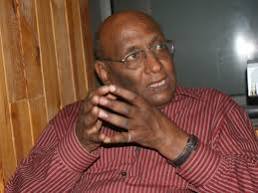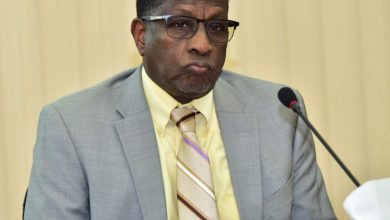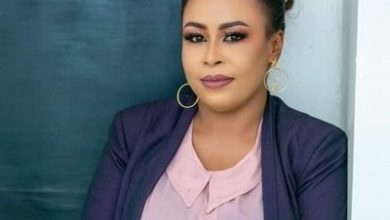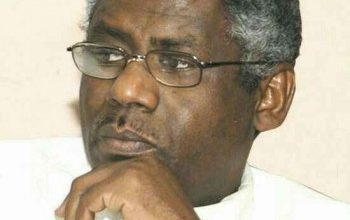Hemedti: The Tribe Brought Out Its Burdens and He Spells Out What is The Matter With It!!! (2-2)

By: Abdullah Ali Ibrahim
Abdulhafeez Maryoud, the columnist wrote that the “Rapid Support Forces (RSF) attacks the Sudan Armed Forces (SAF) on basis of “clans and rural leaders.” The phrase refers to traditional tribal systems. The nomad leaders were the leaders of the times when nomadic leaders prevailed. They had the right, for example, upon victory to seize whatever they wanted from the properties of the vanquished side, no one disputed this right.
The tribe, as a political unit, is slippery and insecure. Dagalo personally experienced tribal politics, and it sickened him until he shouted at a group of its leaders: “Extract the germs that are among you and that are killing your people.” Hemedti did not stay in the war for a while until the germs of tribalism spread among him. The fragility of his recruitment systems on the basis of the tribe was noticeable.
In the news a few days ago that there was a warning of an attack by the “RSF” on the city of Al-Nuhoud, the capital of the Hamar tribe in Western Kordufan State, and that the leaders of the group were looking for ways to repel it, and that this confrontation would be between the “Missiriya” tribe and the Hamar, as if the “Missiriya” and “RSF” is one thing.
If the news is true, then this expected confrontation between Hamar and the “Missiriya” dates back at least to 2021. At that time, young men from Hamar attacked cattle of “Missiriya El-Zurug” by kidnapping and their homes by burning. This was a protest on their part against the downgrading of the Misseriya, the owner of the Area in which they reside. It is unfortunate for them that it is imposed on them a rent for the land and a tariff on the water that is higher than what they demand from others. Misseriya El-Humur, cousins of Misseriya El-Zurug, led a delegation for reconciliation with Hamar in the motto “Your People are your Masters,” in which they agreed on the necessity of demarcating the borders between the two tribes and imposing the prestige of the state by basing the joint forces (the army, the “RS,” the armed movements, and the central reserve on the strip separating between them. Mohamed Hamdan Dagalo, commander of the “RSF”, intervened to contain the conflict in September 2022 through reconciliation, but the confrontation was repeated in December 2022 with heavy losses in lives and wealth. After that, Hamar complained about the bias of the joint forces, which Hemedti had sent to the region, for “Misseriya,” and demanded a military security force from outside the state. Once again, the two groups agreed to stop hostilities in May 2023. If the news we started with is true, it appears that the Misseriya came to Hamar this time under the banner of “RSF,” which is currently working to control Kordufan.
The climax of the issue on the other hand is Hamar’s demand since 2011 for the establishment of a new, special state in which its localities distributed between the states of North Kordufan and West Kordufan would come together. Through this, it wants to leave the state of West Kordufan, which it shares with the Misseriya, and in which they clashed over what would be its capital: Al-Nuhoud for Hamar or Al-Fula for the Misseriya.
The nomad area is pregnant and its germs do not expire, according to Hemedti.
In other news, a statement was issued by the Consultative Council of the Dar Batti tribe on November 1, 2023, while the war was ongoing, about a dispute between Al-Hawazma tribe, which was included in the Attawa alliance mentioned above, and the Dar Batti tribe on the one hand, and the Kawahila and Kanana tribes, due to the latter’s insistence on locking down Marhal (which is the necessary path) which is the traditional road for Al-Hawazma and Dar Betti Al-badia pasturing. This conflict dates back to June 2020, and reconciliation efforts failed to contain it, even those that brought together leaders of the native administration from the states of Khartoum, Darfur, North and West Kordufan, and no one even listened to a call from Abdullah Hamdouk, the prime minister at the time, who belongs to the same region. Murder, burning of houses, and mutilation of corpses were repeated.
As for Dar Betti’s role in the confrontation, it occurred in August 2023, upon their return from its summer resorts in the south in search of water and pasture. The Sudan People’s Liberation Movement (SPLM) of Abdulaziz Al-Hilu, which controls the Nuba Mountains region in South Kordufan, closed the western route to the nomad area. Al-Hawazma contacted the army command in the region to change the route to avoid passing through SPLM areas. Al-Kawahla, Kenana, and Al-Hawazma were notified of the modified route and controls decided to secure its passage, but on the first of November, an armed force in the Al-Kawahla area prevented Al-Hawazma from moving. A bloody clash took place between the militants and Al-Hawazma. Al-Kawahla made ambush against Dar Betti cattle. Al-Hawazma accused soldiers from the regular forces from Al-Kawahla of participating in the clash alongside their families.
Hemedti used the tribe as a political and jihadi base for his project. We saw how he found it upset as a result of the ruling center employing it in things other than what it was created for. It necessarily became a political incubator in successive dictatorial regimes because, unlike parties, unions, and federations, it does not dissolve by decision. The tribe (and indeed its branches and sub-branches) was the remaining organization on the scene for political mobilization for the fraudulent elections held by those regimes, and it is also employed it in a “divide and rule” policy that pitted one party against a party that rebelled against it. For its part, the tribe took advantage of the center’s proximity to it and its great influence to achieve gains in local politics. The “tribal conflict”, as the center’s newspapers described it, became a serious daily fatal occurrence in the lives of these tribes. These conflicts were so frequent and costly that Hemedti himself called them “germs.”
These conflicts have reached such a level of frequency and vulgarity that the nomad has shouted for decades, demanding “the extension of the prestige of the state” so that its life can be secure. Hemedti came not only to make the tribes the subject of his policy and war, but also to dissolve the state, whose prestige was what the tribes themselves desired. It soon brought out its burdens on him, as we saw from the tribal wars that broke out as a result of his war and its capabilities. And yet he says what’s the matter with it!


